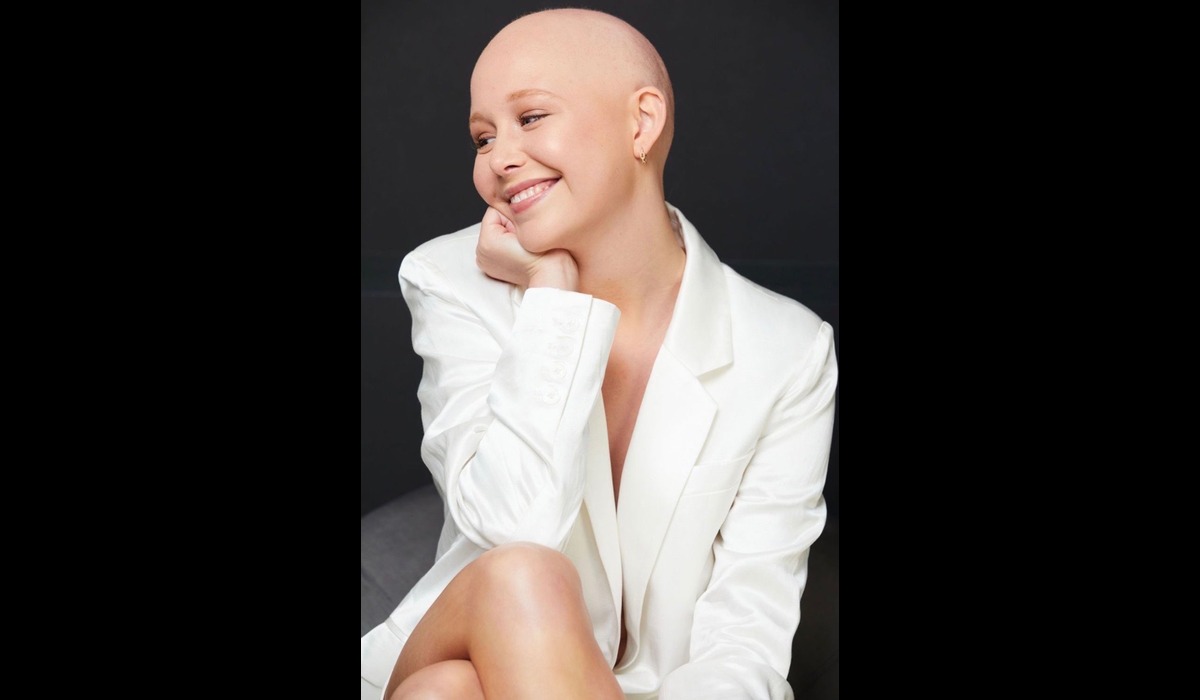'Normalizing Conversations Around Women’s Health'
- “Anne with an E” actress Miranda McKeon, 22, shared her ongoing treatment to help prevent her breast cancer from coming back in a candid Instagram video that shows her taking a hormone therapy treatment via injection.
- McKeon was diagnosed with stage 3 hormone-positive breast cancer in June 2021. This type of cancer needs the hormones estrogen and/or progesterone to grow and thrive. To combat this, hormone therapy helps lower a patient’s estrogen levels, slowing the growth of the cancer or preventing it from returning.
- A side effect of hormone therapy is that it blocks or suppresses essential fertility hormones and may prevent a woman from getting pregnant. This infertility may be temporary or permanent, depending on the type and length of treatment.
- McKeon took the preventative measure of preserving her eggs before she started breast cancer treatment.
- Before undergoing cancer treatment, patients must speak to their doctors about fertility preservation if they wish to have a family in the future. Egg, sperm, and embryo freezing are common approaches to fertility preservation, but other options exist.
“The reason I stay in medically induced menopause beyond being in active chemotherapy is because my cancer fed off estrogen and progesterone. This shot suppresses the levels of those two in my body so that my cancer is less likely to recur (or return),” McKeon said.

Menopause, which the National Institute on Aging describes as a normal part of aging, typically begins in women between the ages of 45 and 55. Symptoms of menopause include body changes, hot flashes, and aches and pains.
“The very first thing I did when I was diagnosed after having a mental breakdown was begin freezing my eggs, and that is because chemotherapy can be very harsh on fertility,” McKeon said.
Since the young actress was diagnosed with breast cancer at 19, the chances of motherhood weighed heavy on her, hence her decision to preserve her eggs.
WATCH: Fertility after Cancer
Some types of chemotherapy can destroy eggs in your ovaries. This can make it impossible or difficult to get pregnant later. Whether or not chemotherapy makes you infertile depends on the drug type and age since your egg supply decreases with age.
Endocrine or hormone therapy may block or suppress essential fertility hormones and may prevent a woman from getting pregnant. This infertility may be temporary or permanent, depending on the type and length of treatment.
If you have a treatment that includes infertility as a possible side effect, your doctor won’t be able to tell you whether you will have this side effect. That’s why you should discuss your options for fertility preservation before starting treatment.
Research shows that women who have fertility preserved before breast cancer treatment are more than twice as likely to give birth after treatment than those who don’t take fertility-preserving measures.
View this post on Instagram
McKeon’s breast cancer is hormone-receptive, meaning it needs the hormones estrogen and/or progesterone to grow and thrive. To combat this, doctors may want to lower a patient’s estrogen levels to help slow the growth of the cancer or prevent it from returning.
The treatment McKeon is taking, Lupron (generic name leuprolide), is a hormone therapy shot that aims to reduce her estrogen levels so her cancer does not grow.
“This shot is what keeps me in medically induced menopause. What it does is quiet the ovaries…Lupron keeps them quiet like a little baby and lets the chemotherapy pass over without doing a ton of damage,” McKeon explained.
“By the time I’m done with these shots, I’ll probably be ready to naturally have kids in my life anyway. The chances are my periods will return. Hopefully, I’ll be able to conceive kids naturally; if not, I have my eggs on ice,” she continued.

McKeon said she enjoys using her platform and breast cancer journey to “normalize conversations around women’s health,” describing it as “scary but so rewarding.”
Many of her supporters offered their continued support online.
“You are so kind and upbeat that women suffering through cancer right now would find your story and PSA so comforting! Keep it up,” Instagram user Donna Doggett commented.
“I’m on year three of a ten-year Lupron plan, but I go to the doctor once a month. I didn’t get an option to inject myself. Do you have bone pain? I’ve even had bone loss,” Instagram user Courtney Cuenca-Smith commented.
McKeon replied to Cuenca-Smith by saying, “I don’t have bone pain, but I do have osteopenia (loss of bone mass) either because of chemo or ongoing medically induced menopause.”
Helping Patients Cope with a Breast Cancer Diagnosis
- Adjusting Chemo to Mitigate Side Effects
- Chemotherapy Side Effects – Hair Loss
- Chemotherapy Side Effects For Ovarian Cancer: Explained
- How Are Chemotherapy Side Effects Managed For Ovarian Cancer Treatment?
- Can Hormone Replacement Therapy Increase Your Risk of Cancer? Understanding the Connection
- Hormone Therapy for Breast Cancer
Understanding McKeon’s Lupron Therapy
Lupron (generic name leuprorelin) is a type of hormone therapy for breast cancer. It acts as an ovarian suppression drug that stops the ovaries from making the hormone estrogen.
Lupron is usually given by injection into a muscle once a month or every three to six months. The length of treatment varies, and your doctor can determine that information.
Some known side effects of Lupron may include tiredness or fatigue, hot flashes, spotting, and muscle or joint pain.
WATCH: Understanding hormone therapy for breast cancer.
Hormone therapy is used for hormone receptor-positive cancers. When a tumor is “hormone receptor-positive,” it means tests reveal the cancer is positive for either the estrogen and/or progesterone receptor. Cancers of this type need estrogen and/or progesterone to grow.
McKeon’s Cancer Journey
McKeon shared parts of her cancer journey in an Instagram post. She said a small lump “the size of a jellybean” in her breast initially caught her attention.
“I stepped away into the bathroom. I peed, fixed my hair, and performed the classic boob scoop a typical mid party practice,” she wrote in an Instagram post. “I brushed across a lump that was definitely not there before. It was the size of a jellybean but powerful enough to sink my stomach and set off emergency sirens in my head.”

After going to see her doctor about it, she underwent a mammogram, which screens for breast cancer. She also underwent a biopsy and an ultrasound. The tests confirmed her diagnosis of stage 3 hormone-positive breast cancer in June 2021. Interestingly, the young actress said she did not have a family history of the disease.
“I spent most of that time confused and scared, but mostly in shock,” she told Coping magazine. Most of us go through life believing that we are untouchable. It’s a crazy feeling when the spinner lands on you.”
As previously noted, before beginning chemotherapy, she preserved her eggs. She underwent several rounds of chemotherapy for treatment.
WATCH: When to consider a mastectomy?
A mastectomy is the removal of the entire breast during surgery. There are several factors to weigh when considering a mastectomy, such as if breast-conserving surgery (or lumpectomy) is possible. Your doctor will evaluate the size and features of your tumor and your family history to make a recommendation.
In some cases, a double mastectomy is a viable treatment option. During this procedure, both breasts are removed to get rid of cancer. A double mastectomy may also be performed as a preventative measure for women who are at a very high risk of developing breast cancer.
After chemotherapy, she underwent a double mastectomy and reconstruction, followed by 25 rounds of radiation.
“I never would have anticipated that going through cancer treatment would feel like working five full-time jobs at once!” she said.
Her treatment helped her reach remission, though she continues treatment to offset recurrence.
What To Ask Your Doctor
If you have been diagnosed with breast cancer, you may have questions about keeping your strength through treatment. Here are a few questions to help you begin the conversation with your doctor:
- What treatment will I be receiving?
- What side effects are associated with this treatment?
- Are there steps I can take daily to help minimize these side effects?
- What physical activity routine do you recommend for me during treatment?
- Do you have recommendations for someone who doesn’t particularly enjoy exercise?
- Can you recommend a dietician who can help me with healthy eating tips and weight maintenance?
- I’ve been having trouble sleeping. Do you have any treatment recommendations?
Learn more about SurvivorNet's rigorous medical review process.

